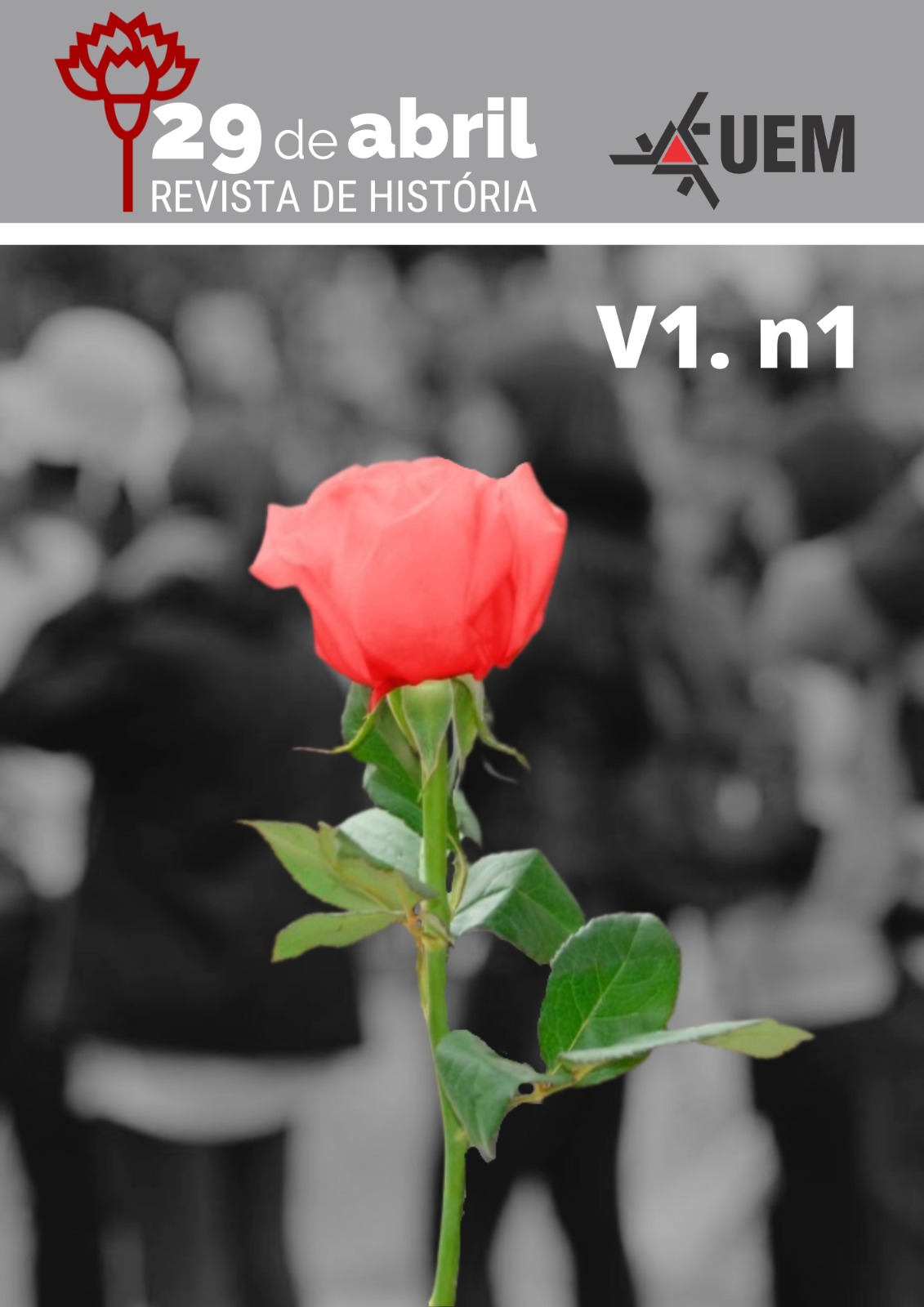História do Tempo Presente, Historiografia e Subjetividade
Reflexões sobre a escrita histórica e o ofício de historiador
Resumo
O presente artigo é uma reflexão sobre a presença da subjetividade na constituição da escrita histórica e do ofício de historiador na área da historiografia em História do Tempo Presente – HTP. Tem como objetivos: o geral: contribuir com uma reflexão sobre a relação entre os conhecimentos do campo da HTP, da historiografia e da subjetividade com vistas ao estabelecimento da cientificidade desse campo, e o específico: ressaltar a presença da subjetividade como elemento epistemológico importante na escrita histórica e no ofício de historiador na área da HTP. A questão problema é: quais achados teóricos sobressaem quando se considera a presença da subjetividade na produção historiográfica e no ofício do historiador na área da HTP? Trabalhamos com a hipótese de que a subjetividade humana é elemento epistemológico presente, importante e dele decorrem implicações em toda a produção historiográfica e no ofício de historiador no campo da pesquisa relacionada à HTP. Essa hipótese tem como marco referencial as elaborações de Dosse (2012) e de Delacroix (2018). Metodologicamente este trabalho está no campo da produção teórica e interdisciplinar que envolve história, filosofia e literatura. Dentre outros, os achados são: a subjetividade como idiossincrasia do ofício do historiador e de sua produção historiográfica; a produção da escrita histórica no campo da HTP passa necessariamente pelo exercício crítico do historiador no trato com as fontes documentais; é peculiar à escrita histórica, na HTP, a construção de narrativas e interpretações mediada pela subjetividade social do historiador.
Downloads
Referências
BARBIÉRI, Luiz Felipe. Comissão Especial da Câmara rejeita PEC do voto impresso; proposta deve ir a plenário. G1; Brasília, 05 de agosto 2021 Disponível em: https://g1.globo.com/politica/noticia/2021/08/05/comissao-da-camara-rejeita-pec-do-voto-impresso.ghtml . Acesso em: 15 jan. 2021.
BRASIL. Comissão Nacional da Verdade. Relatório Final / Comissão Nacional da Verdade. Brasília: CNV, 2014.
DELACROIX, Christian. A história do tempo presente, uma história (realmente) como as outras? Tempo e Argumento, Florianópolis, v. 10, n. 23, p. 39 ‐ 79, jan./mar. 2018.
DOSSE, François. História do tempo presente e historiografia. Revista do Programa de Pós graduação em História, Florianópolis, v.4.n.1, p.5-22, jan/jun, 2012. 10.5965/2175180304012012005. Disponível em: https://www.revistas.udesc.br/index.php/tempo/article/view/2175180304012012005/2014. Acesso em 06 nov 2020.
HARTOG, François. Regimes de historicidade: presentismo e experiências do tempo. Tradução de Andréa S. de Menezes, Bruna Breffart, Camila R. Moraes, Maria Cristina de A. Silva e Maria Helena Martins. Belo Horizonte: Autêntica, 2014
ISTO É. Em novo livro, Padura reflete sobre o presente a partir de dores passadas. Caderno Cultural, 2018. Disponível em: https://istoe.com.br/em-novo-livro-padura-reflete-sobre-o-presente-a-partir-de-dores-passadas/. Acesso em: 7 de jan, 2021.
KUHN, Thomas S. A estrutura das revoluções científicas. 5. ed. São Paulo: Editora Perspectiva S.A, 1997.
MARIANO, Rubem Almeida. Do AI-5/1968 a EMC-11/1978: o posicionamento político da Igreja Evangélica de Confissão Luterana no Brasil – IECLB durante os governos Médici e Geisel. Projeto de tese (Doutorado em História Política). Programa de Pós-graduação em História. Universidade Estadual de Maringá, Maringá, 2021.
MATOS, J. Os ideais de subjetividade e objetividade na história: o paradigma da verdade. Disponível em: http://www.uab.furg.br/course/view.php?id=1085 . Acesso em 15 jan. 2016.
MONTEIRO, Carlos Henrique. Brasil está na maior crise sanitária e hospitalar da história, segundo Fiocruz. G37, 20 de março de 2021. Disponível em:
NOLTE, E. O passado que não quer passar – um discurso que não pôde ser escrito, mas não proferido. Frankfurtes Allgermeine Zeittung, 1986. Disponível em https://pt.scribd.com/document/364853980/20080623-passado-que-nao-quer-passar-pdf Acesso em: 15 jan. 2021.
ORGANIZAÇÃO MUNDIAL DE SAÚDE. CID-10. Classificação de Transtornos Mentais e do Comportamento da CID- 10: descrições clinicas e diretrizes diagnósticas. Porto Alegre: Artes Médicas, 1993.
PADURA, L. A transparência do tempo. São Paulo: Boitempo, 2018.
ROUSSO, H. A última catástrofe: a história, o presente e contemporâneo / Henry Rousso; tradução de Fernando Coelho, Fabricio Coelho – Rio de Janeiro: FGV Editora, 2016.





 Esta obra está licenciada com uma Licença
Esta obra está licenciada com uma Licença 